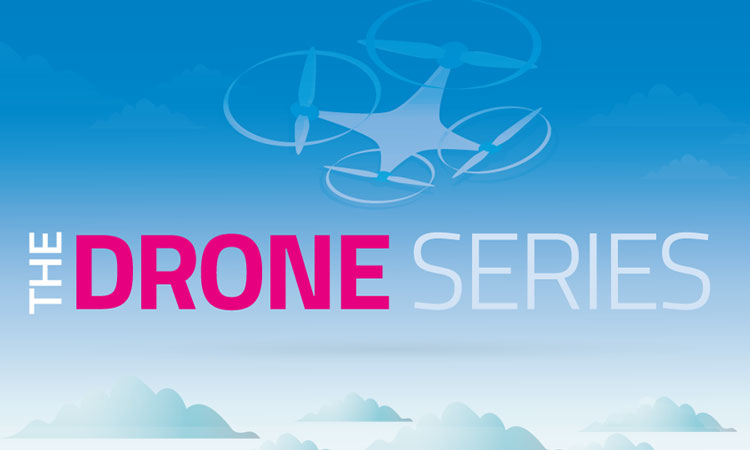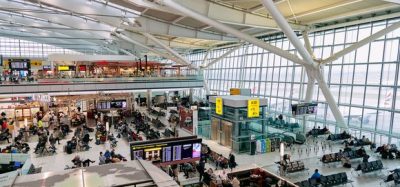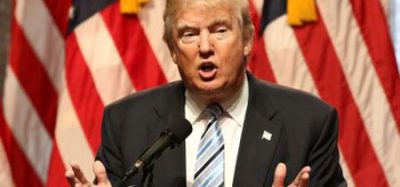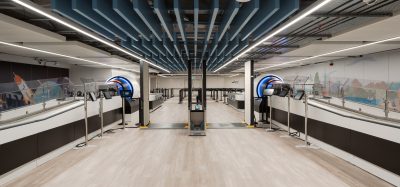Drone Series: Will the new legislation make a difference?
- Like
- Digg
- Del
- Tumblr
- VKontakte
- Buffer
- Love This
- Odnoklassniki
- Meneame
- Blogger
- Amazon
- Yahoo Mail
- Gmail
- AOL
- Newsvine
- HackerNews
- Evernote
- MySpace
- Mail.ru
- Viadeo
- Line
- Comments
- Yummly
- SMS
- Viber
- Telegram
- Subscribe
- Skype
- Facebook Messenger
- Kakao
- LiveJournal
- Yammer
- Edgar
- Fintel
- Mix
- Instapaper
- Copy Link
Posted: 23 January 2019 | Lee Mansell | 1 comment
For the first instalment of our ‘Drone Series’ we spoke exclusively to Lee Mansell, Chief Operation Officer at Operational Solutions, to discuss the implications of the new legislation. Operational Solutions are one of a number of specialist UK companies working with airports to find ways to detect, deter and counter drones to limit the potential disruption they can cause.


As Baroness Sugg herself said: “Drones have the potential to bring significant benefits and opportunities, but safety and security must be our top priorities.”
I absolutely agree with this sentiment and I’m keen to see increasing and responsible use of drones. There is no doubt this can bring both commercial and societal benefits. It is, therefore, refreshing to see Baroness Sugg acknowledging the positive potential of drones in light of recent events.
Responsible use of drones must, of course, include compliance with the new legislation. However, as with any legislation, it has to be enforceable to make any difference at all.
Despite this, there is an argument that legislation will not deter the ‘bad-actors’. Personally, I don’t entirely agree with this – if the relevant authorities (e.g. the police) are given the resources to enforce the legislation, then there is a genuine threat to the bad-actor of detection, followed by detention.
With the right technology these threats could persuade the bad-actor that the chances of completing their mission are too low to justify the undertaking. Consider the terrorist threat, it is widely accepted that most terrorists are as motivated by the publicity a successful attack generates as by the actual harm or damage caused. An attack that is successfully prevented therefore presents a negative publicity risk and potential longer-term disruption to terrorist capability.
It is important to distinguish between intentional and inadvertent breaches of legislation. There is a huge difference between a one kilogram hobby drone accidentally getting 50 meters inside the airport’s extended five-kilometre exclusion zone, and a long-range five-kilogram drone being intentionally positioned 100 metres above the threshold of Heathrow runway 27.
As ever in law, a proportionate response is required. Whilst the legislation may not prevent the deliberate act described, awareness of the legislation may significantly reduce the instances of the inadvertent event. One way of increasing awareness of legislation is for people to see that it is being enforced. Frankly, it is unlikely any airport or police force will have sufficient resource to chase every drone that grazes the edge of the zone. Therefore, a means of assessing potential intent of a drone in breach of the legislation is needed.
The good news is there are technological solutions that will work and, even better, lots of them have been developed by UK companies. There is, therefore, a fantastic opportunity for the UK to become a world leader in drone detection, tracking and identification technology whilst simultaneously promoting the safe use of drones. However, what does it mean for UK drone users? Not forgetting the vast majority are entirely law-abiding and as horrified as anyone else by the type of disruption we saw at Gatwick and, presumably, keen to avoid any £100 fines!
Whilst more detail as to how the rules will be policed are awaited, the first and obvious thing to say is if you don’t want to get caught breaking the rules then first you must know them and second you must adhere to them. It’s a bit like the post that goes round on social media now and then, ‘the 100 per cent fool-proof way to NEVER get caught speeding again’ – we all read it expecting to see some amazing detector or legal loophole but, of course, the punchline is “never break the speed limit”.
How drones will be identified and, therefore, traced back to their owners is an interesting question. More expensive drones already have technology in them that can be used as a unique identifier (for the technophile reader think MAC address!) but a simpler system may be required. Police will be able to carry out forensic identification of drones for fingerprints and so on as well – and it is amazing what intelligence can be gathered from the photos stored on the drone. There is a story doing the rounds online of a crashed drone found near a naturist beach that, when police looked at the on-board memory card, had a great photo of the owner standing next to his car, registration number in full view.
Just because the police will have the power to take drones down doesn’t mean we will see this happening routinely. There are many considerations – not least how to bring it down and who is liable for damage or injury caused by drones that crash due to the police intervention. There are lots of companies offering net capture systems, jammers, even special shotgun cartridges. It is easy to see advantages and disadvantages to all these systems and quite quickly it becomes apparent that the decision to take down a drone could be as contentious as the decision to deploy armed police.
If we are to believe Amazon, some media commentators and even pizza delivery companies, the skies will soon be filled with drones buzzing around delivering our shopping and meat-feasts with extra pepperoni. Whilst I’m far from convinced that is actually how the future will pan out, even if it is partially true, it will be essential to have systems in place that not only identify the ‘bad’ drones but make the skies safe for the ‘good’ ones.
Biography
Lee was an Aerospace Battle Manager in the Royal Air Force for 20 years, finishing his military career as a Flight Commander on 54 Squadron, flying in the position of Tactical Director on the AWACS Surveillance aircraft. Since leaving the RAF Lee has worked in both military and commercial flight simulation, joining Operational Solutions (OSL) in 2015. Since then he has been part of the team building OSL’s counter drone understanding and capabilities and has worked with a range of clients including government agencies and several UK and overseas airports.


















Interesting stuff! Having been personally affected by the drone issue at Gatwick before Christmas, I can see this detection stuff (whatever form it may take), is desperately needed asap.
It is not just airports that may need protection either……… Just imagine the scenario; a rogue drone carrying harmful chemicals within a, filled to capacity, sports stadium for instance.
A rather worrying thought I think!
Good to know we have some experts in the field, actively working on these counter-terrorism measures.
S.A.File.